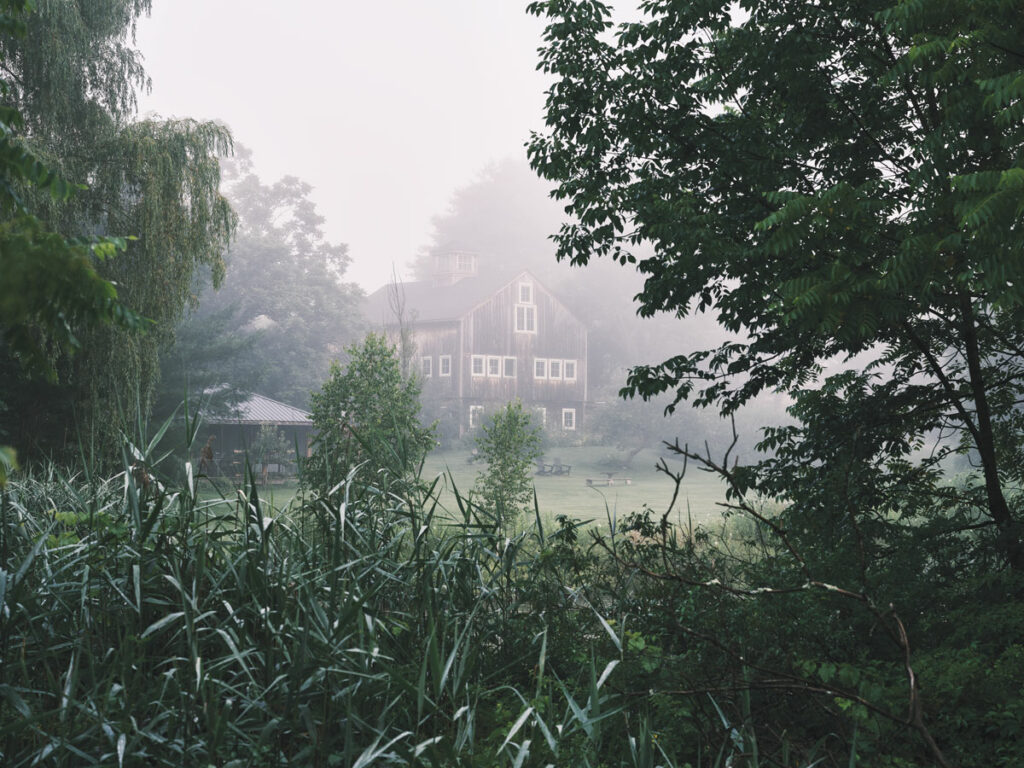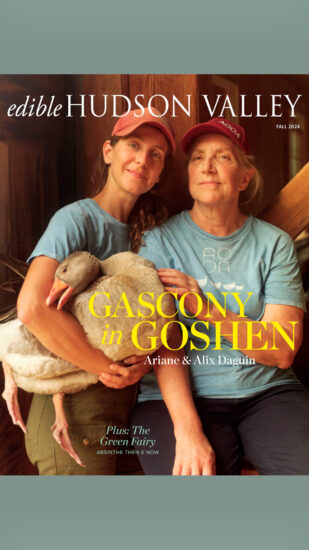Do Better With These Four Rules
PHOTOGRAPHY BY THOMAS LOOF, FRANK FRANCES, WILLIAM ABRONOWICZ & JOSHUA McHUGH
Don’t be another neutral in a world of neutrals. Make your home come alive using these four precepts from Interiors: Styled by Mieke Ten Have.
FEATURED IMAGE (TOP)
Going Big. In this Manhattan bedroom designed by Ellen Hamilton, vivid color and diverse fabrics work together. The Viso tapestry over the headboard blends with Turkish, French, and Indian textiles of varying scale on the bed; rich paisleys speak to each other across the room. The vivid blue walls are a strong backdrop, against which colors of equal weight pop.
Color Theory
“I’m promiscuous when it comes to color—I am a lover of many, but most especially of titillating color combinations. Little is more powerful than the use of color to transform and envelop. Yet color is a very polarizing medium; there’s no accounting for personal preference, and as in all things, I advocate following what you love. There’s a lot of fear surrounding the use of non-neutral colors; a solid vigorous color can overwhelm, whereas a solid sedate color can bore—the worst outcome of all!
A color’s success in a room is often predicated on what it is coupled with; styling with the right colors can be very impactful. Adding secondary and tertiary hues, usually from other color families, can not only paradoxically amplify the primary color but also, more importantly, generate a dialogue between them that enlivens a room and spares it from monotony.”
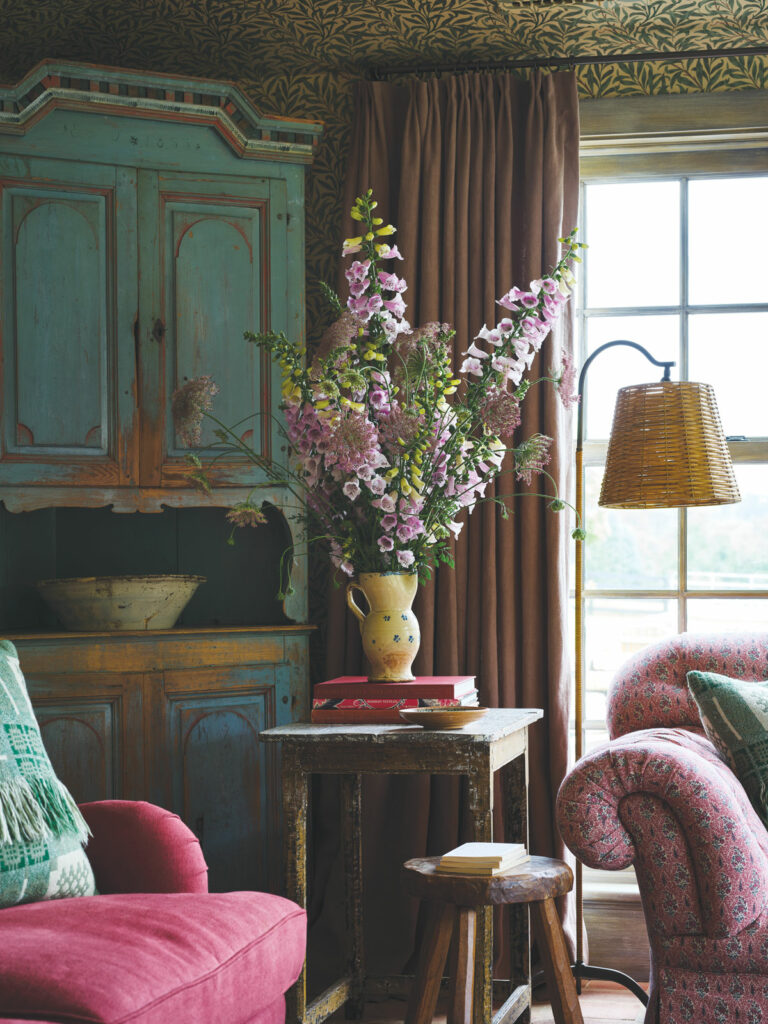
Pattern Play
“An interesting, successful room is one in dialogue with itself. Deploying various patterns within a space can reveal more about the room and the objects in it than a blank canvas ever could. It is in conversation and juxtaposition that things show their true nature, whether it be fabric, antiques, or art. I think of using patterns in two ways: literally, as in the patterns in textiles, wallcoverings, and rugs, and conceptually, as in collections or themes created by the grouping or placement of either similar or diverse objects, artwork, and shapes.
What binds these two disparate ideas is the way in which patterns move the eye about the room, imbuing it with liveliness and dynamism. Patterns have the capacity to bring an interior to life.”
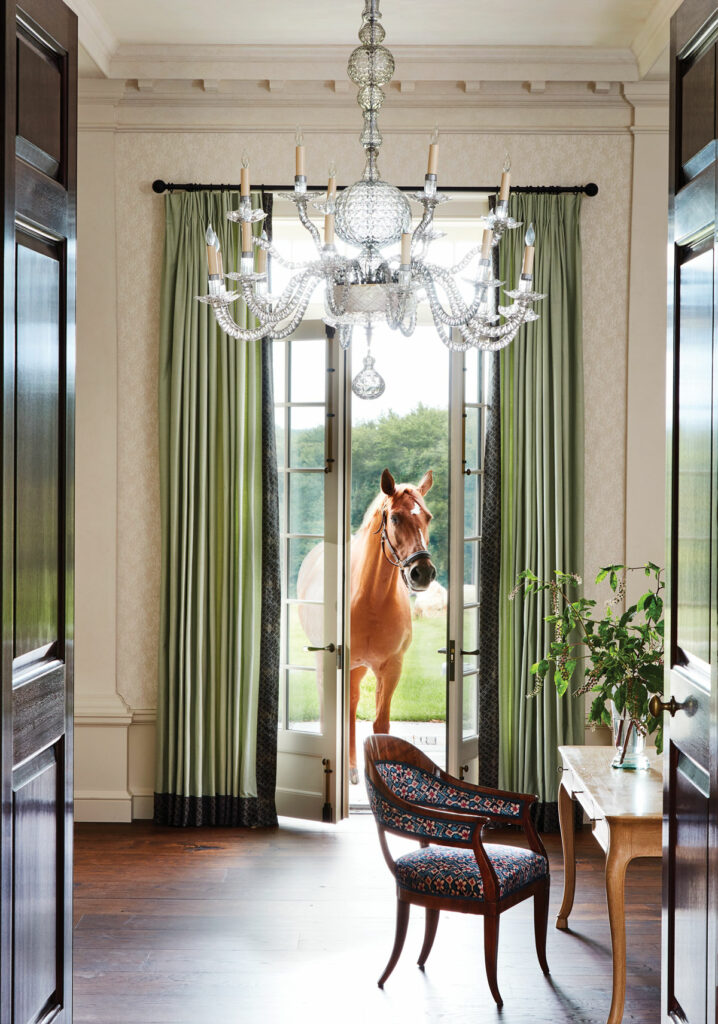
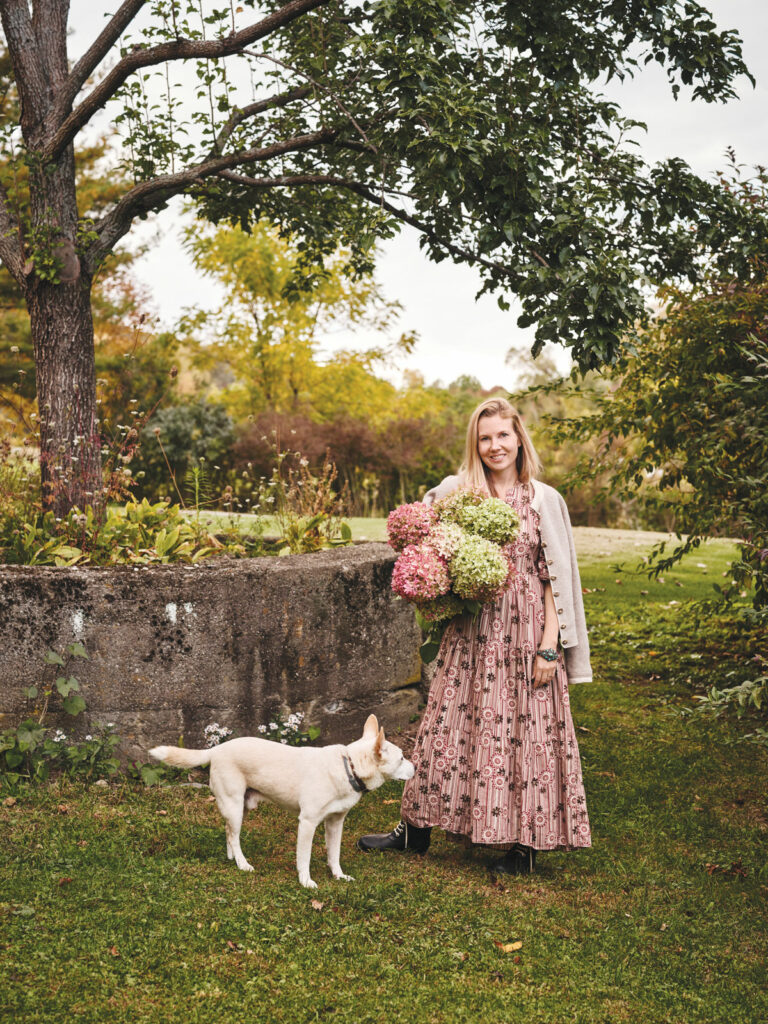
Wild & Tame
“For as long as the decorative arts have existed, we human creatures have had a need to bring the natural world inside. Flowers and wilderness motifs in tapestry, artwork, and other surface design have long preserved the fleeting months of spring and summer and served as an allegory for time’s impermanence.
Personally, I carry a pair of shears in my car and often in my purse, in case I happen upon a weed or a branch that I simply must bring home. In each space I touch, I try to foster a dialogue between that which is civilized and tame and that which is wild and uncontrolled. Interesting spaces revel in this duality. Harnessing oppositional elements breaks down the barrier between inside and out, and introducing elements out of context delights the eye.”
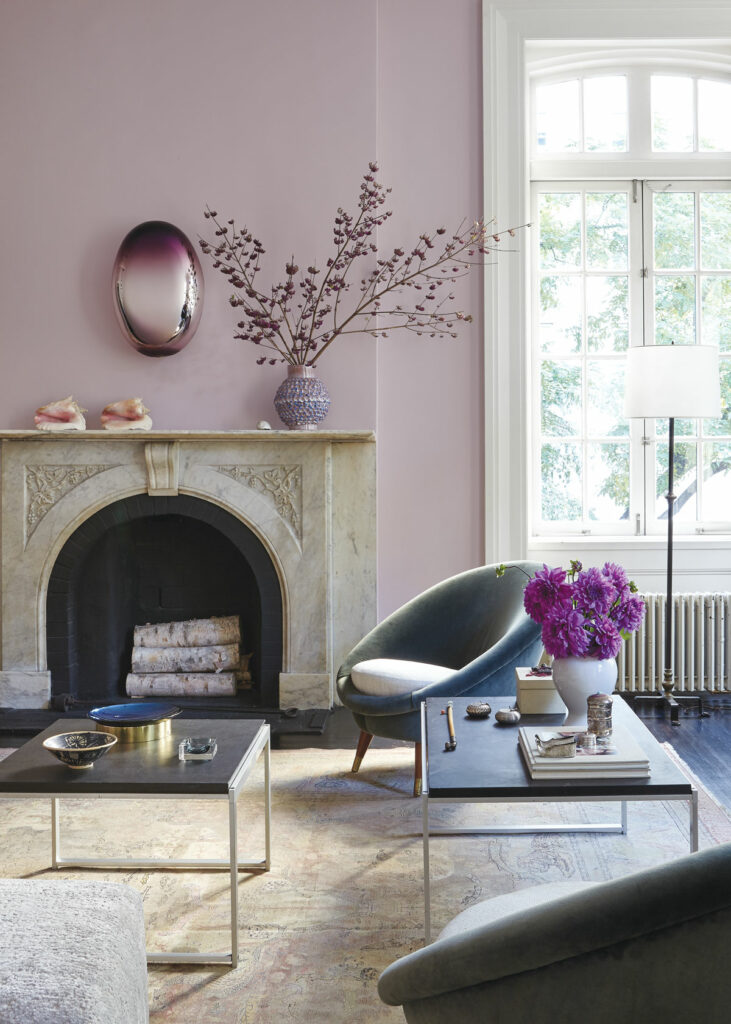
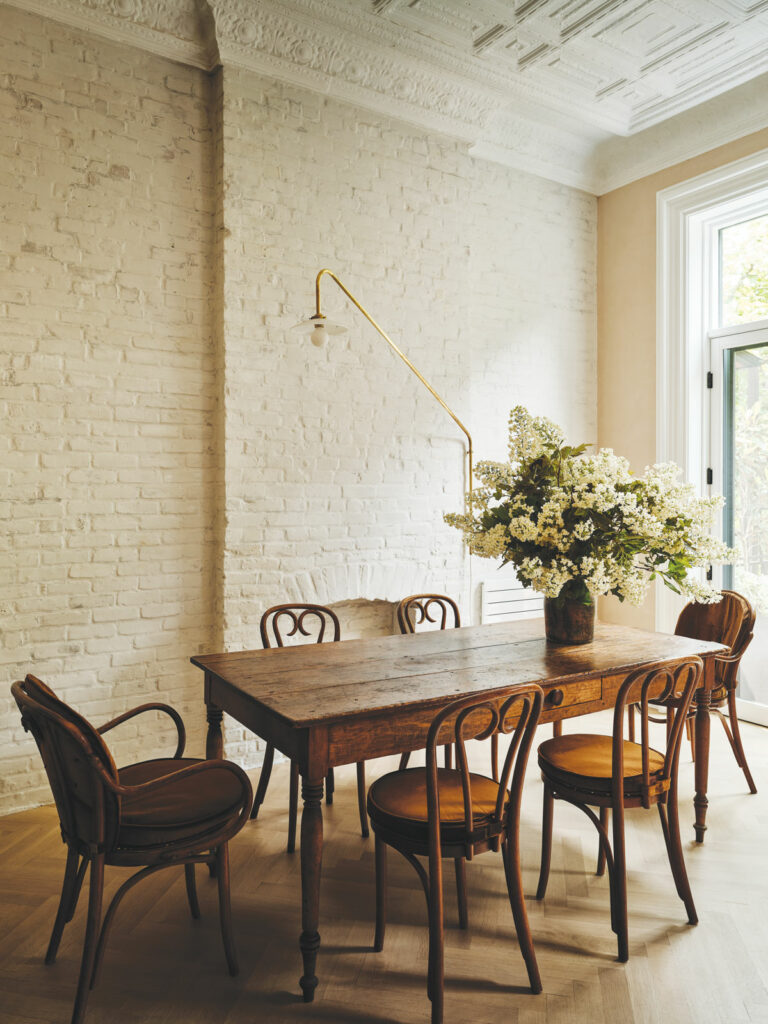
Flowers for Living
“Growing up in New York City, I never paid flowers much mind. My mother was an enraptured, passionate gardener at our summer house in Maine, and she’d bring in cut blooms to create lavish and lush arrangements in antique vessels and pots she’d gotten from my grandmother or sourced antiquing.
Though I wasn’t interested in her gardening endeavors, I was interested in the way her arrangements brought softness, beauty, and energy into the house. Today, the first whiff of lilac each spring takes me back to childhood, with an entire summer set to unspool before me and the intoxicating scents of my mother’s garden wafting through the windows of our country house.
Thus, I come to floral design through the lens of interiors and the purpose that flowers so beautifully serve indoors. They can enliven, soften, energize, romanticize, and reinforce the sentiment of a room.”
A Barn in Time
Mieke Ten Have’s Dutchess County Home
“Having always lived in a big city, this was the first time in my life that I became aware of the subtle changes in the outside world that herald the onset of a new season. Now, when I hear the red-winged blackbird’s call, I know that spring is being ushered in, no matter what the snow and mud on the grizzled ground lead me to believe. There is a kind of magic in finding seasonal patterns in nature that are predictive and signal change before it is noticeable. Just as the seasons quietly change around us, so, too, does the way we live in our homes.”
